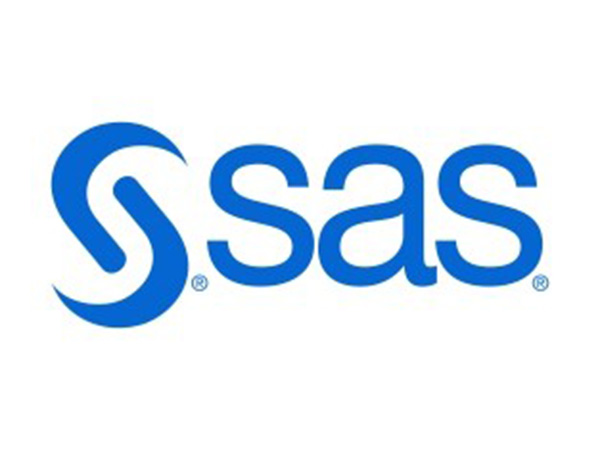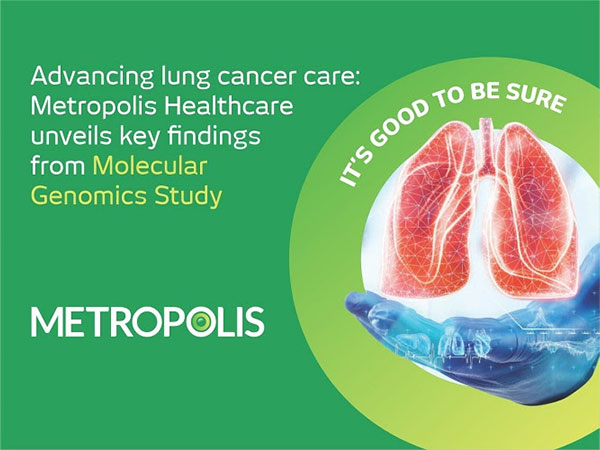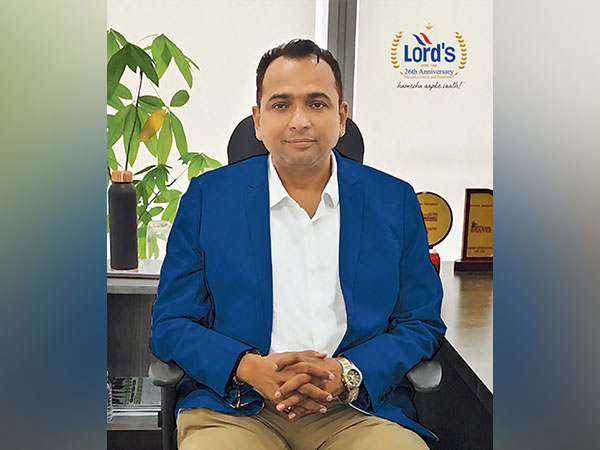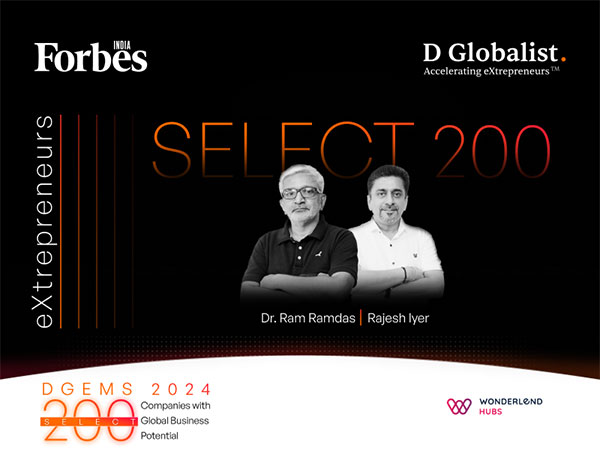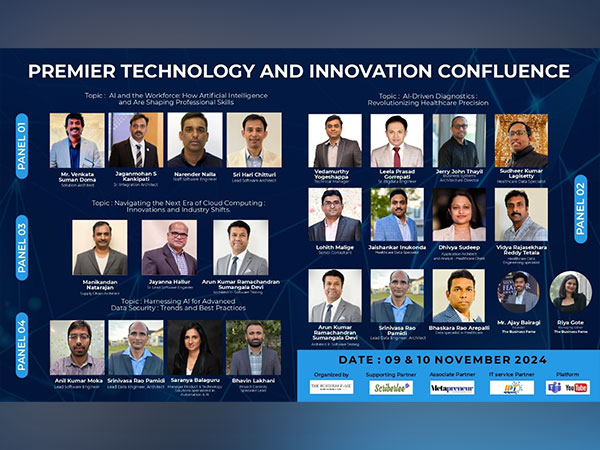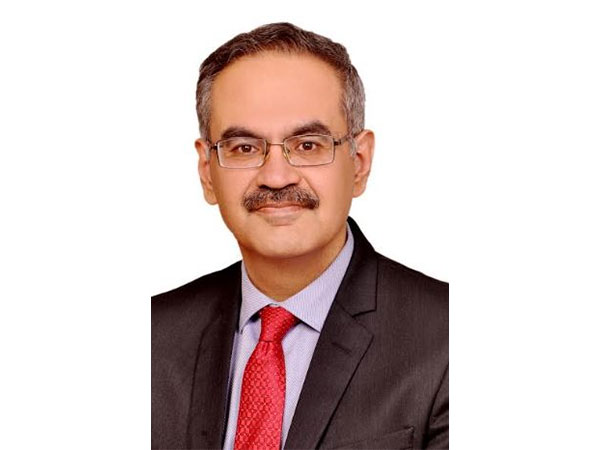Expanded SAS Viya uses generative AI to accelerate customer productivity
Apr 24, 2024
VMPL
Mumbai (Maharashtra) [India], April 24: So many organizations have jumped on the generative AI (GenAI) bandwagon in the last year, but are those efforts delivering results yet? If the organization uses the SAS® Viya® data and AI platform, the answer is a resounding yes. Infused with large language model (LLM) orchestration strength, SAS Viya is already helping customers accelerate efficiency and productivity. Throughout 2024, SAS will continue delivering innovation by broadening its trustworthy GenAI footprint with the introduction of its own synthetic data generator - SAS Data Maker - and by offering industry-specific GenAI assistants.
"SAS" guiding principle is everyone should be able to query data and perform complex analytical operations in every phase of the data and analytics life cycle, and generative AI is crucial in this democratization journey," said Wiktor Markiewicz, Senior Market Research Analyst at IDC. "But most leaders don't understand AI technology and how they can apply it meaningfully. Having an already trusted data and AI platform available removes the guesswork and kickstarts the generative AI journey."
Georgia-Pacific and wienerberger rely on SAS Viya for AI and GenAI capabilities
Manufacturer Georgia-Pacific is a SAS customer using Viya. "When challenges emerge with our manufacturing equipment or process, we leverage sensor data, business rules, recommender systems and generative AI to suggest the appropriate next best action and resolve the problem," said Roshan Shah, Vice President, Collaboration & Support Center, Georgia-Pacific. "Streaming analytics and intelligent decision management support from SAS Viya helps us capture immediate value by making the right decisions as events occur."
About Georgia-Pacific, SAS Executive Vice President and CTO Bryan Harris said, "One of SAS' core strengths is our deep bench of industry knowledge. We understand manufacturing, and we understand Georgia-Pacific's unique challenges. We help them appropriately scale LLM orchestration and manufacturing-specific GenAI assistant strategies so their employees can use those cutting-edge applications to troubleshoot real-time operational issues."
Global brick manufacturer wienerberger also uses SAS for AI support. The company reduces energy consumption, cuts greenhouse gas emissions and improves product quality using SAS on Microsoft Azure. "We use AI and IoT analytics from SAS to connect all our data streams and analyze the entire production process," says Florian Zittmayr, Team Lead for Data Science at wienerberger. "SAS Analytics brings intelligence to the kiln by helping our engineers and employees to gain valuable information about each step and identify specific target values to make the drying and firing of bricks more economical."
And a global consumer goods manufacturer uses Viya and its GenAI capabilities to optimize warehouse space, allocate inbound shipments and compare "what-if" scenarios based on product demand. SAS helped develop an LLM-based digital assistant by dynamically updating SAS Visual Analytics dashboards so the company's supply chain teams can easily save time and improve warehouse space usage with in-depth analytics. This conversational assistant allows both technical and business users to generate fast and accurate results and improve decision making using SAS' trustworthy, explainable analytics.
Organizations are enthusiastic about adopting and deploying GenAI, but there's often a gap between preparedness and execution. Learn more by reading the US Executive Summary from a new study: Generative AI Challenges and Potential Unveiled: How to Achieve a Competitive Advantage.
SAS Viya stands out in the GenAI crowd because of pragmatic, industry-driven applications
As organizations explore GenAI, SAS prioritizes identifying industry-driven and ethically applied use cases. SAS enables secure adoption and fosters accelerated productivity and trusted results across diverse industries and regulatory landscapes. SAS' GenAI functionality lives in leading products like Viya and SAS Customer Intelligence 360:
* GenAI orchestration: Viya integrates external GenAI models with existing business processes and systems, orchestrating LLMs for end-to-end enterprise use cases. These capabilities are now available in SAS Viya.
* Viya Copilot: Enhances productivity for developers, data scientists and business users with a personal assistant that accelerates analytical, business and industry tasks. Viya Copilot offers diverse tools for tasks like code generation, data cleaning, data exploration, marketing planning, journey design and knowledge gap analysis. The first iteration of Viya Copilot is available through an invitation-only private preview.
* SAS Data Maker: Addresses data privacy and scarcity challenges by generating high-quality synthetic tabular data without compromising sensitive information, enabling organizations to address data privacy. SAS Data Maker is now available in private preview.
* Customer engagement. SAS continues to infuse GenAI capabilities into its flagship MarTech solution, SAS Customer Intelligence 360, to help marketers elevate the customer experience. SAS Customer Intelligence 360 already offers GenAI assistance on streamlining marketing planning, journey design and content and creative development. SAS is now introducing three new capabilities in SAS Customer Intelligence 360 for marketers: using GenAI to build recommended audiences based on natural language prompts, a chat experience to interpret audience data and a GenAI suggestion service for email subject lines.
The GenAI functionality of SAS Viya makes a meaningful difference to customers planning to:
* Accelerate innovation: Seamlessly integrate GenAI models into decisioning workflows, AI/ML applications and existing business processes by using decisioning flow tools like SAS Intelligent Decisioning.
* Protect data: Support user privacy and security with robust data quality measures, including synthetic data generation, data minimization, anonymization and encryption, so sensitive information remains safeguarded.
* Create trustworthy and explainable results: Data experts can apply natural language processing techniques to preprocess data and explain the generated output, minimizing hallucinations and token costs.
* Enhance governance: Use built-in tools to create workflows that validate the life cycle of LLMs, including model risk management.
* Make more precise decisions: Quantitative decisioning capabilities, critical for successful GenAI reasoning, are built into the Viya platform.
The announcement was made at SAS Innovate, the data and AI experience for business leaders, technical users and SAS Partners. Keep up with the latest news from SAS by following @SASsoftwareNews on X/Twitter.
About SAS
SAS is a global leader in data and AI. With SAS software and industry-specific solutions, organizations transform data into trusted decisions. SAS gives you THE POWER TO KNOW®.
SAS and all other SAS Institute Inc. product or service names are registered trademarks or trademarks of SAS Institute Inc. in the USA and other countries. ® indicates USA registration. Other brand and product names are trademarks of their respective companies. Copyright (c) 2024 SAS Institute Inc. All rights reserved.
Editorial Contact:
Kunal Aman
kunal.aman@sas.com
+91 22 6250 1600
www.sas.com/news
(ADVERTORIAL DISCLAIMER: The above press release has been provided by VMPL. ANI will not be responsible in any way for the content of the same)
